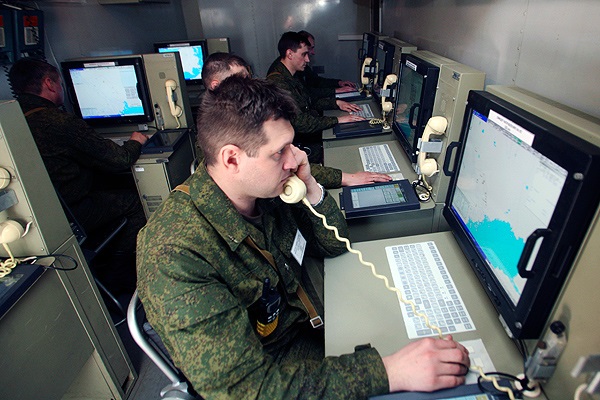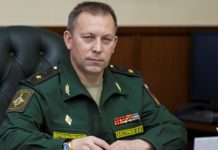Pavel Kantyshev, Yelizaveta Sergina
Vedomosti, August 25, 2016, pp. 1, 17
The Security Council is gong to revive a project for creation of an integrated communication network for the state bodies. This is said in a letter of Security Council Secretary Nikolai Patrushev to President Vladimir Ivanov.
SECURITY COUNCIL REVIVED THE IDEA OF CONSTRUCTION OF A SEPARATE COMMUNICATION NETWORK FOR THE MILITARY AND SPECIAL SERVICES
The Security Council is gong to revive a project for creation of an integrated communication network for the state bodies. This is said in a letter of Security Council Secretary Nikolai Patrushev to President Vladimir Ivanov. A person close to one of the shareholders of state-run Rostelecom and a source acquainted with several top managers of the operator are aware of existence of this letter.
The matter is about creation of a trunk network physically separated from the general-purpose communication network that state power bodies use now. According to the letter, this will solve the problem of reliable and steady state and military governance.
In March of 2015, the Communication Ministry started developing amendments to the law “On communication” that implied creation of a protected network for the state bodies but half a year later the project received negative comments of the Economic Development Ministry. The ministry decided that it actually duplicated the already existing special-purpose communication networks and dedicated networks. Nonetheless, the bill was not buried. Now it is at the stage of evaluation of regulating effect and conduction of independent anti-corruption expert examination.
Patrushev proposes appointment of Rostelecom as operator of the integrated communication network. Proposals about practical achievement of this were worked out by the Federal Communication Agency subordinated to the Communication Ministry). The agency proposes three scenarios placing them according to the principle of decrease of expenses and reduction of state control over Rostelecom.
First, it is possible to include the integrated network into the existing infrastructure of Rostelecom and the state will help it to finance the construction buying an additional issue of its shares (now the Federal Agency for Management of State Property and VEB have a 52.99% stake for two). According to the Federal Communication Agency, creation of the chain will require 663.4 billion rubles (including 581 billon rubles from the state budget).
To this amount it is necessary to add annual maintenance costs of 54.86 billon rubles plus 50 billion rubles if the Federal Agency for Management of State Property decides to buy shares from minority shareholders.
The Federal Communication Agency says that a drawback of this option is the fact that in case of privatization of Rostelecom the state may lose control over the network for the state bodies.
The second scenario is transfer of the integrated network to a subsidiary of the state operator first and its sale to the state afterwards. Because such deal requires approval of three-fourths of votes the state will possibly have to increase the share in Rostelecom to 75.1% beforehand. According to estimates of the Federal Communication Agency, in ten years the aggregate expenses will amount to 973 billion rubles: they will consist of the same 663 billion rubles for creation of the network, 50 billion rubles for increase of the stake, 60 billion rubles for increase of the subsidiary from Rostelecom by the state and 25 billion rubles per year on operation of the network according to concession model.
The third model is so-called service one. Rostelecom and Federal Communication Agency will sign a ten-year contract under which the operator connects the state bodies to the integrated network and the Federal Communication Agency pays for its services. Along with this, expenses in ten years will amount to 623 billon rubles. The state will remain with the exiting block of Rostelecom shares and will not receive the integrated network.
These scenarios are known to a federal official and a source close to one of the shareholders of Rostelecom.
A source close to the management of Rostelecom doubts that the federal budget can finance such grandiose project at all. He reminds that so far Rostelecom does not receive from the state a much smaller amount due to it fully. This amount is due to it as to contractor of the project for construction of optical fiber networks for elimination of digital inequality. The person familiar with several federal officials is also skeptical and presumes that the project of creation of a special network for state bodies will hardly be brought into life: the Finance Ministry will be against the project for sure.
Absence of a separate protected communication network for state bodies was declared as the main obstacle for privatization of Rostelecom for many years. The state-owned stake in Rostelecom was included into the forecasted plan of privatization for the period between 2014 and 2016 but it was necessary to postpone privatization of the company many times because special services and Defense Ministry that were served by Rostelecom too were against it. The government discussed options in which a shareholder agreement was a condition for privatization of Rostelecom that would oblige Rostelecom to serve the special consumers without interruption even after its transfer to a private owner. But the Defense Ministry disagreed with this and it proposed its own option: Rostelecom will build a so-called contour of special communication in the form of a closed network that provides communication between the armed forces and security services, transfers it to the state and then may be sold.
The person acquainted with top managers of Rostelecom presumes that construction of the integrated network will only postpone the privatization because it will be impossible to sell it to the state quickly.
Putin’s press secretary Dmitry Peskov and representative of the Finance Ministry did not respond to the queries. Representatives of Rostelecom and Communication Ministry declined to comment. It was impossible to obtain comments from the Federal Agency for Management of State Property.














